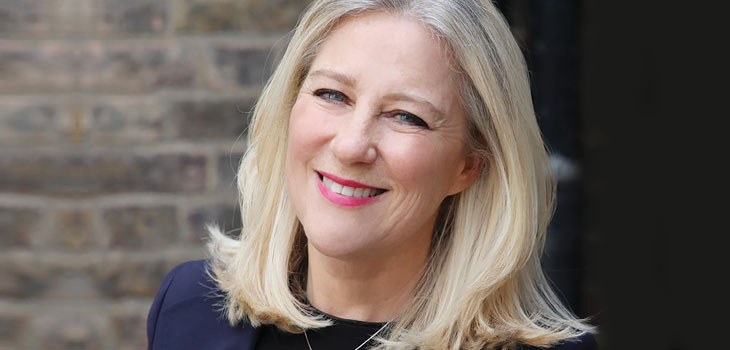
It is early April and, as a colleague in chambers reminded me, a quarter of my year as Chair of the Bar has already gone. What a different time in office this has proved to be. The COVID-19 pandemic has created an unprecedented time of global uncertainty. Its impact is all-pervading, and its repercussions are being felt at every level of society. There has never been a more acute imperative for justice to be upheld. In England and Wales, the Bar is essential to the delivery of justice not just in ordinary, but in extraordinary, times and the Bar Council has been centrally involved in responding to the daily challenges of making that happen.
The essential role of the Bar
The government acknowledged the vital role of the Bar by designating many barristers as essential workers in March and reiterated its importance in successive announcements since. Ensuring the safety of members of the Bar, their clients and other court users by reducing the spread of COVID-19 is the Bar Council’s paramount short-term aim. Reacting to the pace of change in government policy to combat the virus has been hugely challenging for all involved in the courts—judiciary, HMCTS and other agencies, court staff, legal professionals and our clients. The speed with which technology has been adopted and tested is phenomenal. It needs time to perfect. These changes are fundamental to ensure the continued delivery of justice. Our members, SBAs (Specialist Bar Associations) and Circuits are rising to the challenges we face, sharing and learning from one jurisdiction to another, across the piece. Unforeseen or unintended consequences need to be ironed out.
Nonetheless, while dealing with the quotidian, we must also take care of the longer-term survival of a flourishing, diverse and excellent Bar; it is crucial to justice in our country. To that end, we are doing all we can to enable barristers to keep working safely—now, often remotely—and to tide the Bar over until normal flows of business can resume. The Bar Council recently surveyed Heads of Chambers to gather direct evidence of the impact of COVID-19 on our profession; the most pressing concerns were cash flow and the interruption to court work. The highest levels of government and the judiciary know about these existential problems and we are liaising with them to try to ensure the profession can survive.
Looking after the interests of junior barristers and pupils is a top priority. They are the future; without young, diverse practitioners coming into and remaining in the profession, there will be no Bar, let alone one that properly reflects the society we serve. In other words, we must protect those vital to the sustainability of our profession. We must not let the rug be pulled from under their feet.
Court closures
The Bar Council called for courts to be closed unless and until they could be safe for court users. No barrister should be exposed to unnecessary risk to health. It quickly became apparent that the courts carrying on as before, could not comply with social distancing or meet the hygiene standards that the Government required throughout public life. But the corollary of courts being closed to the public and lawyers, was an inevitable downturn in barristers’ ability to make a living. Those immediate imperatives needed to be addressed.
Deferring payments & eligibility for loans
Government measures such as deferral of VAT payments and postponement of tax on self-employed earnings until 2021 are of short-term benefit to much of the Bar, as is the recently amended Coronavirus Business Interruption Loan Scheme (CBILS). These measures should alleviate the immediate downturn in receipts of many individuals and chambers. But they do not remove the underlying debt, even if the barrister or chambers is eligible to benefit.
Self-employed measures
Further measures for the self-employed with taxable earnings of under £50,000 will also help some—but not all. We know the government measures secured so far are not enough for many practitioners, especially for pupils, the junior bar, those returning to practice after a break or moving over into the profession from employment. It is neither right nor fair that the most vulnerable and newest members of our profession are ineligible for the scheme. We know the measures do not support many hard-working barristers. We are pressing hard for more.
Pupils
We are well aware of the particularly vulnerable position pupils find themselves in, even in ordinary times. In this crisis, they are more at risk, in terms of going to crowded court hearings in person, security in chambers and financially. The Bar Council, with our Young Barristers’ Committee (YBC), have their interests at heart. Practically, we offer online training and advice on remote completion of pupillage. I know at least one Circuit has ensured that every existing pupil’s contract will be honoured. I applaud them, hoping that becomes a cross-Circuit strategy.
Many pupils are worried and, our survey demonstrated, with good reason. 30% of sets are changing their plans for pupillage starting in 2020 or 2021, so that they will not be taking pupils, as previously planned; a further 24% are unsure, meaning that even more pupillages are at risk. Where we had made strides in diversifying the Bar this is a terrible blow.
Going forward
Things are changing fast and I am in daily discussions with the Ministry of Justice and the judiciary. As we look out for all our members, I encourage you to look after your and your colleagues’ wellbeing.
Our profession has an impressive record of adapting to change. In these extraordinary times, I have no doubt we will adapt, but the government must also play its part in ensuring the sustainability of a strong, diverse and vibrant Bar to safeguard access to justice for all in the future.
Please stay safe.
Amanda Pinto QC, Chair of the Bar Council.









